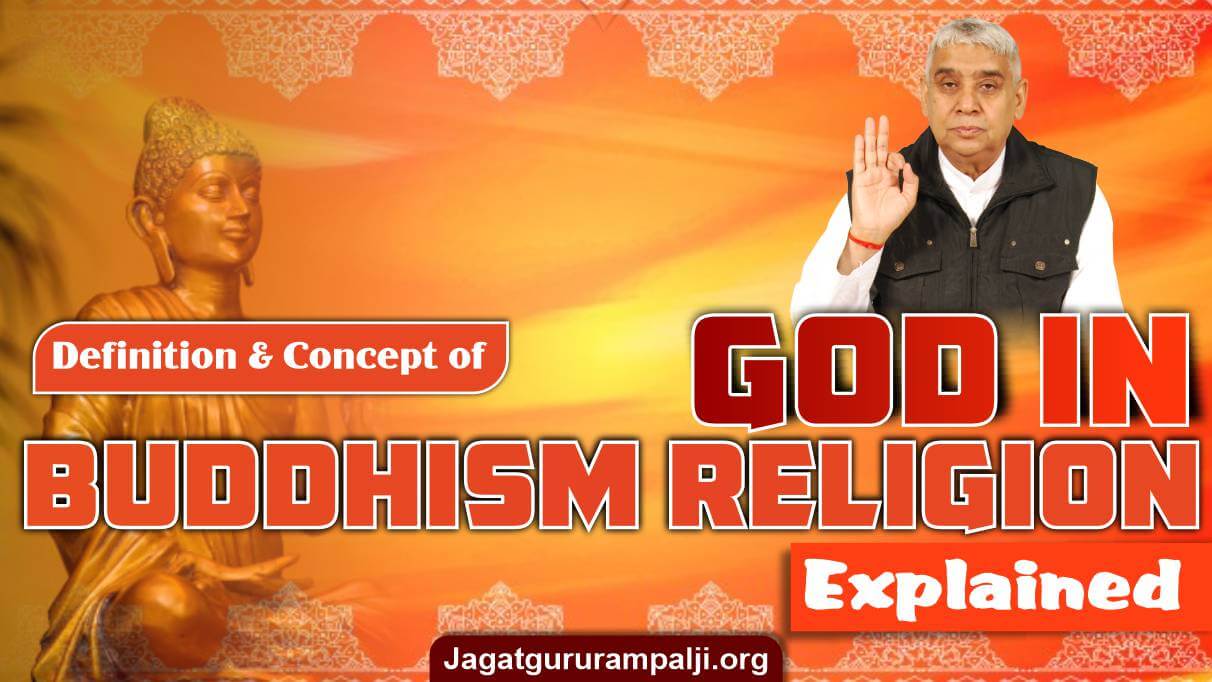
Definition & Concept of God in Buddhism Religion
Spiritual Leader Saint Rampal Ji Satlok Ashram

Various beliefs prevail in Buddhism regarding the path to liberation. Being the world’s 4th largest religion it besets a number of traditions and practices based on the teachings of Lord Buddha. Let us understand the concept of God in Buddhism through this write-up by getting an overview on the biography of Gautama Buddha and try to analyse whether the religious practices followed in Buddhism are appropriate in the attainment of salvation?
The highlights will be on the following
Who Founded Buddhism?
What did Buddha Actually Say About Divine Beings?
- Divinity in Buddhism
- Followers Who Advocates Communism
Whom do Buddhists Pray?
The Act of Insanity: Human Sacrifice
To begin with let us know who founded Buddhism?
Who Founded Buddhism?
The Buddha, 2600 years ago, was an Indian philosopher, religious teacher, and the historical founder of Buddhism.
The Buddha was also known as Shakyamuni and was born as Prince Siddhartha Gautama (563-483 B.C.) near the town of Kapilavastu (now in Nepal). His mother, ‘Maya’ died seven days after giving birth to him. His father, ‘Shuddhodana’ was the ruler of the city of Pataliputra; Śākyan clan, a tribe known as the Shakyas. He had all that life could offer: material possessions, a loving family, fame, reputation and power. He later ventured out in search of God.
How did Buddha’s father protect him in his early years?
Soon after the birth of Buddha (Siddhartha), a seer predicted that Siddhartha would become either a great king or a great spiritual leader. Wanting him to be a great political leader, his father protected him from any contact with the problems of suffering, death, and injustice.
It is said that Gautama’s father, in order to prevent him from worrying about unpleasant situations, built a special palace for him surrounded by distracting luxuries.
When Gautama turned 16 years old, he eventually married Yashodhara and had a son named Rahula. Although Siddhartha had everything he could want, he was still not happy.
“Siddhartha made a bold move and gave up his worldly commitments”
Siddhartha renounced his princely life to live as an ascetic, wandering & learning as he had a strong desire to attain God. He left his family, his palace and everything else at the age of 29 and became the founder of a sect of wanderer ascetics (Sramanas); the Buddha (means “the awakened one”).
“The Buddha is not a God, nor a saviour who can save others.”
Gautama began a search for the answers to the formal questions of life that bothered him and achieved general awareness with the self-professed religious means for dealing with them. In the absence of the True Master, he practiced against the scriptures and continued to dwell on some religious questions but did not solve the basic human predicament. He is said to have experimented with many different teachings for seven years but found none of them acceptable. After six years of severe physical austerity, he realized that extreme self-denial was not the path to ultimate happiness. He became disillusioned with things with all wrong conceptions and defilements that brought temporary, worldly happiness